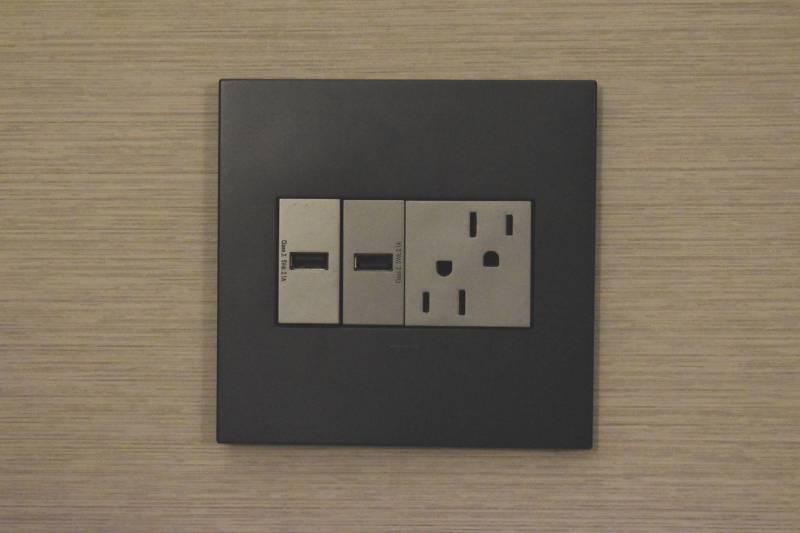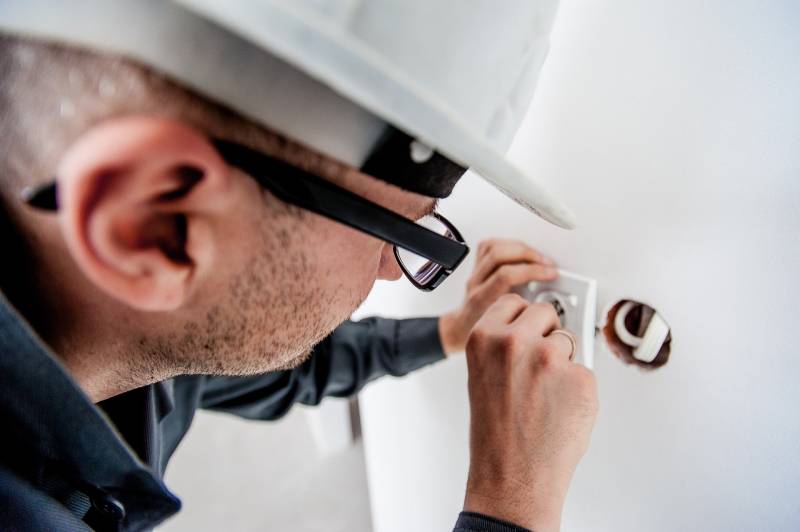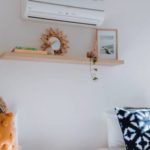Table of Contents
You’re seated watching your favorite series and suddenly hear a loud popping sound inside the house!
Before you panic, try to figure out where the sound came from – is it the HVAC system, roof, water heater, or wall socket? Knowing where the loud “pop” sound came from can help you to tackle the issue.

Most loud popping sounds usually occur in house electrical. So, you should start by checking your wall sockets.
The sound can occur because of a poor installation that allowed the wire to come together, a bad socket, a living thing entering the socket, or excess moisture in the socket.
When Should I Worry About These Noises?
Although there is a continuous faded noise from an electrical appliance, you need to worry when the noise is louder than usual. In the case when you have identified the electrical equipment that’s making noise. Immediately unplug it and avoid plugging any other device into the same socket until it is examined by an electrician. For lighting fixtures, you may need to replace the bulb or you may have been using the wrong bulb till now.
However, if the buzzing sound is coming from the electric panel, you should not mess with it. Sometimes, you can’t hear the sound from the electric panel standing a few feets away, that’s why you need to be attentive. In this case, shutting off the electricity would be a bad idea because you’ll have to open the electric panel to shut it off. In the worst-case scenario, you might get a fatal high-voltage shock. Calling an expert immediately would be a wise decision rather than taking chances of doing the job on your own.
In this post, we’re going to elaborate on these causes and how to fix them. These are as follows:
1. Improper Installation
One of the leading causes of a loud popping sound in house electrical is improper installation. An electrician may have wrongly installed a socket or appliance in your home. Hence, if there’s a loose connection, a popping sound may be heard.
Besides, improper installation can also cause arcing electricity, which is even worse. Aside from producing a popping sound, arcing electricity can also destroy your appliance or even start a fire.
Note that every breaker box comes with an electrical circuit routed through a circuit breaker designed to trip if the current exceeds its rating. Therefore, the popping sound may be coming from the breakers or the wire connections.
Electricity can travel very fast via the air from exposed wire to another metal surface, which may end up producing a “pop” sound.
That’s what is called “Arcing electricity”. If you hear this sound come from a wall socket or appliance, don’t go near it if you don’t know what to do. It’s very risky, and you should wait for an electrician to inspect it.
How To Fix The Problem
If it’s a loose connection, carefully tighten the screw terminals down onto the wires. But if you’re not experienced, call a professional electrician to tighten the wires.
But if it’s arcing electricity, here is what you should do:
- Learn about the hazard and utilize low-risk technology
- Improve safety training and risk awareness in your home
- Exercise extra care when dealing with electrical outlets and appliances
- Install Arc Fault Circuit Interrupters instead of a standard circuit breaker
2. Bad Socket
If you hear popping, cracking, or buzzing sounds coming from your socket, then there is something wrong. Like loose wires in the socket, a bad socket can also cause popping and result in arcing electricity.
If some wires in the socket are not loose but damaged, then you have to replace them. If you’re lucky, you will hear a ‘pop’ sound, but it can be worse than this.
Sockets, electrical outlets, or power outlets are vital as they deliver constant power to TVs, laptops, lamps, and other electrical appliances in homes. Therefore, if the socket or power outlet is bad or faulty, it can cause havoc in the house.
Power sockets are used constantly, but few homeowners remember to maintain them. With many years of use, sockets may become damaged and a threat to users. Not only can they cause a popping sound, but they may even cause power failures and electrical fires.
How To Fix It
If you suspect that the loud popping sound came from your power socket, you should have it replaced with a new one. Other signs that can highlight a bad socket include bad fuses, electrics switching off temporarily, and cracks in the power outlet plate.
Apart from replacing the damaged socket, you can also exercise these practices:
- Inspect your power outlets monthly
- Always purchase electrical appliances from reliable sellers and reliable brands
- Never pull the wire while removing plugs from outlets
- Avoid overloading any socket with power extension cables
3. Ingressing From Bugs, Ants, Spiders, And Termites
Apart from loose wire and bad sockets, a loud popping noise can also occur in your power socket because of a living creature ingressing the socket. It can be insects, ants, or even spiders. Aside from causing a popping sound in the socket, these creatures can even lead to more severe problems.

If a living creature ingresses the socket, it leaves behind waste and tracks in debris.
As a result, the bugs or ants inside the socket may contribute to the corrosion of your electrical contacts and circuit boards. Additionally, the ants may chew on the wiring and cause the circuits to short.
One of the common areas where bugs such as cockroaches hide is in electrical appliances. They love these places because they are dark and can hide without being found. The only issue is that they may chew on electrical and cause things to blow up, leading to a popping sound.
How To Fix It
Getting rid of bugs in the socket or electrical appliance is very challenging. This is because bug terminators may not be able to spray bug killers in your appliance. Besides, spraying these killers inside the electrical device or socket can damage and corrode parts.
Nonetheless, the only solution for getting rid of bugs is by terminating them from your home. They may still find their way through your power socket or appliance. So, use all the possible means as covering things like your socket is almost impossible.
4. Excess Moisture in the Socket
If you have a power outlet near the bathroom or wash area, you may also hear a popping sound. This can happen because of a small amount of water, such as high humidity in your bathroom entering the closest outlet.
Moisture entering your outlet can cause an interruption that will make the outlet cease working. Besides, the wires that are linked to the outlet may possess a live electrical current. This current is very risky as it can cause a fire or electrocution.
How To Fix It
If you suspect that the popping sound from your socket was caused by moisture due to high humidity, then you should do the following.
First and foremost, you should turn off the power at the breaker box. Flip the breaker to stop the electrical current from moving.
Next, test the outlet or contact an electrician to come and test the outlet for you. Never remove or repair an outlet if you’re not sure if the breaker is turned off. Afterward, replace the outlet with water as it will not be efficient even after drying it.
If you have not installed a ground fault circuit interrupter (GFCI), you should do so. This gadget helps to automatically turn off if the flow of electricity is interrupted.
As a result, you will be safeguarding yourself and avoiding any serious damages in case of excess moisture in the socket trying to interfere with electricity flow.
Bottom Line
Now that you have an idea why you may have heard a loud popping sound, you should go ahead and check your wall socket and appliances to ensure they are in perfect condition.
If the wall socket is good, but one of your appliances has an issue, you can follow the steps provided above to fix the issue. But if you don’t have experience dealing with electrical appliances, you should contact a professional electrician.
Note that the popping sound is very dangerous and can cause a fire if the issue is not attended to. Therefore, you should identify the problem or call an electrician to help you out and fix the issue as well.


![Why Is My Standing Fan Making Noise? [Top Reasons] Why Is My Standing Fan Making Noise? [Top Reasons]](https://homesteadandprepper.com/wp-content/uploads/2021/10/Why-Is-My-Standing-Fan-Making-Noise-150x150.jpg)



![It Sounds Like Water Constantly Running In House [Causes] It Sounds Like Water Constantly Running In House [Causes]](https://homesteadandprepper.com/wp-content/uploads/2021/04/why-does-it-sound-like-water-is-constantly-running-in-my-house-150x150.jpg)

